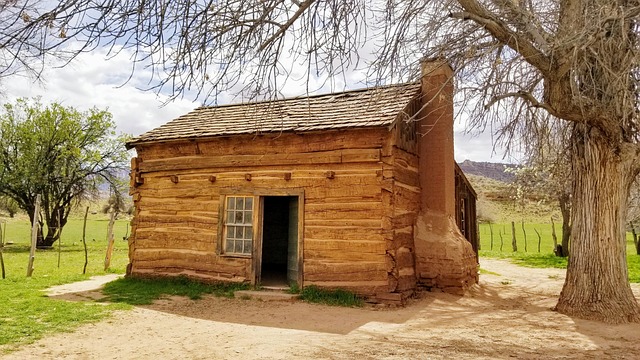In Oregon, grandparents seeking custody rights must navigate complex family law. They can build strong bonds through visitation, pursue temporary/permanent custody, or establish guardianship with parental consent. Court decisions prioritize the child's best interest based on factors like grandparent-grandchild relationships and stability. A compelling case requires evidence of positive impact, documented interactions, and character references to gain custody rights. Post-custody, grandparents maintain a balanced role through consistent interaction, respect for boundaries, and open communication to foster a healthy long-term connection.
Navigating Oregon legal custody for grandparents can be complex, but understanding your rights is crucial. This article guides you through the process, from recognizing grandparent custody rights in Oregon to gaining custody legally. We explore court decisions that shape these cases and provide insights on building a strong case with evidence and testimony. Additionally, we discuss post-custody strategies for maintaining meaningful relationships with grandchildren.
- Understanding Grandparent Custody Rights in Oregon
- Legal Pathways to Gain Custody of Grandchildren
- The Role of Court Decisions in Grandparent Custody Cases
- Supporting Your Case: Evidence and Testimony
- Post-Custody: Maintaining a Strong Grandparent-Grandchild Relationship
Understanding Grandparent Custody Rights in Oregon

In Oregon, grandparent custody rights are recognized and protected under specific legal frameworks. Grandparents who wish to seek custody or visitation rights must understand their legal standing in this regard. The state’s laws provide a framework for determining what is in the best interest of the child when deciding custody matters, including those involving grandparents.
Grandparent custody cases often require a thorough understanding of family law and can be complex. It’s crucial to recognize that while grandparent custody rights exist, they are subject to court decisions based on various factors. These may include the relationship between the grandparents and the child, the parent’s ability to care for the child, and any historical or current circumstances impacting the child’s well-being.
Legal Pathways to Gain Custody of Grandchildren

Grandparents seeking legal custody of their grandchildren in Oregon have several pathways to explore. One common route involves establishing a strong relationship with the child and their parents, often through regular visitation and support. If the parents’ abilities to care for the child are questioned due to issues like substance abuse or neglect, grandparents can petition the court for temporary or permanent custody, aiming to provide a stable and loving home environment.
Another legal approach focuses on guardianship, which allows grandparents to gain decision-making authority without formally adopting the child. This path is particularly relevant when parents consent or are unable to make decisions on their child’s behalf. By petitioning for guardianship, grandparents can ensure they have a legal say in significant aspects of the grandchild’s life while maintaining the family connection.
The Role of Court Decisions in Grandparent Custody Cases

In Oregon, court decisions play a pivotal role in determining grandparent custody rights. When a family court is involved, a judge carefully evaluates each case based on the best interest of the child. This involves assessing factors such as the grandchild’s relationship with their grandparents, stability within the current living situation, and potential benefits or drawbacks of granting custody. The court’s decision acts as a legal framework that ensures the child’s well-being is at the forefront of the process.
Grandparents seeking custody rights must understand that these decisions are not solely based on blood relations but also consider the child’s overall happiness and development. Presenting a strong case, backed by evidence of a loving, supportive relationship with the grandchild, can significantly influence the outcome. Court decisions in Oregon have recognized the valuable role grandparents can play in a child’s life, making their input and efforts crucial during these legal proceedings.
Supporting Your Case: Evidence and Testimony

When pursuing legal custody rights as a grandparent in Oregon, presenting a strong case is essential. Supporting your application with solid evidence and credible testimony can significantly influence the court’s decision. Collect any documents that highlight the child’s current living situation, including medical records, school reports, or photos showcasing their relationship with you. These can serve as visual testaments to the positive impact you’ve had on their life.
Additionally, consider gathering character references from reliable sources within your community who can vouch for your ability and willingness to provide a stable and loving home environment. Personal letters, video testimonials, or even affidavits from these individuals can add weight to your case. Effective use of this evidence and testimony will demonstrate your commitment to the child’s well-being, strengthening your position as a viable candidate for custody rights.
Post-Custody: Maintaining a Strong Grandparent-Grandchild Relationship

After legal custody is established, maintaining a strong bond with your grandchild is crucial for grandparents. This involves creating consistent and meaningful interactions that respect both the child’s and parent’s boundaries. Regular visits, shared activities, and open communication can help reinforce the grandparent-grandchild relationship.
Grandparents should also be mindful of their role in providing support and guidance while allowing the child to develop independently. Balancing involvement and autonomy is essential to fostering a healthy long-term connection. This post-custody phase requires patience, understanding, and an unwavering commitment to being an active presence in the grandchild’s life.














